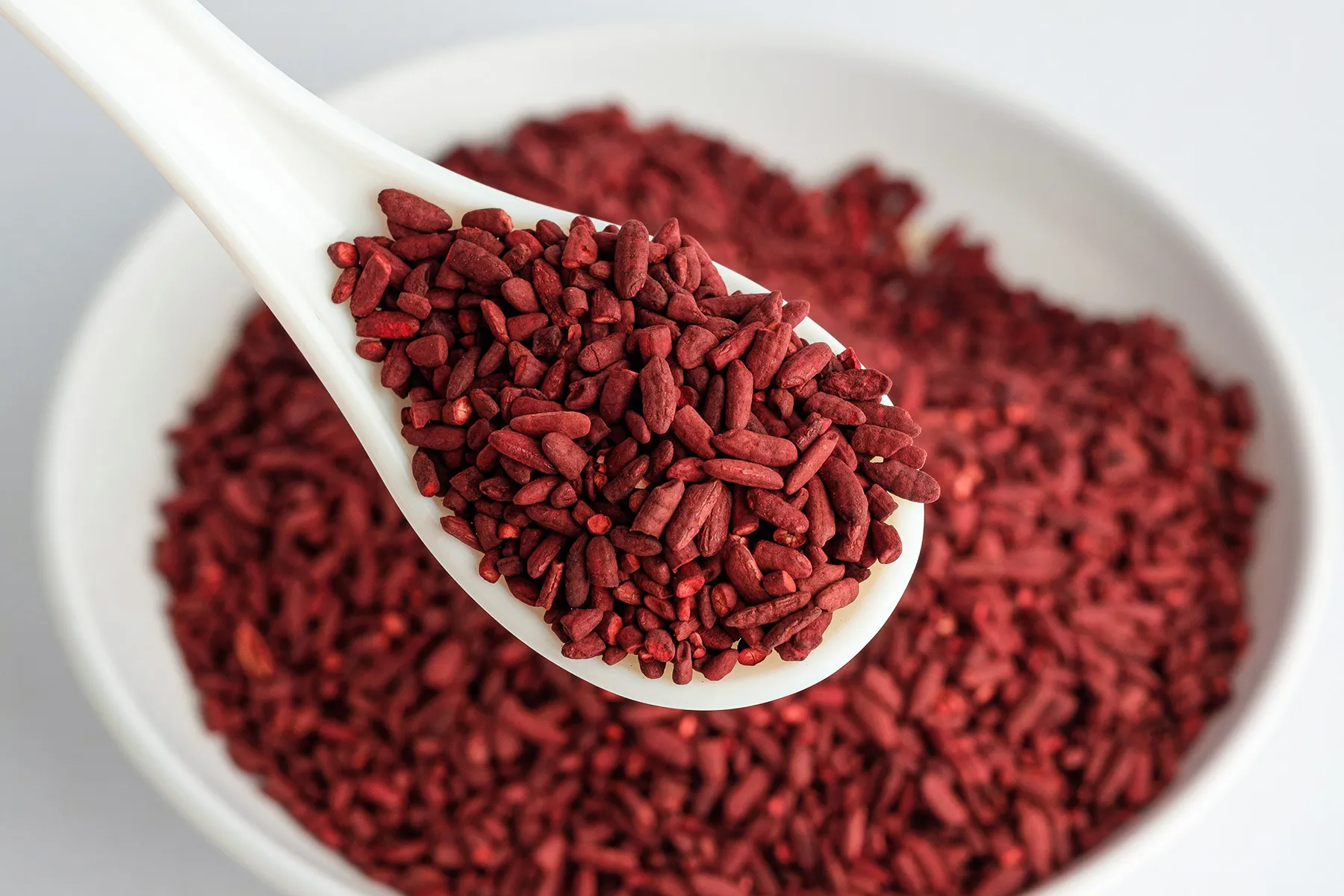- 0086-571-85302990
- sales@greenskybio.com
Why Did the FDA Ban Red Yeast Rice?
2025-07-08


Red yeast rice has long been a staple in traditional Chinese medicine, revered for its potential health benefits, particularly its ability to lower cholesterol. However, in the United States, the Food and Drug Administration (FDA) has consistently maintained a ban on supplements containing red yeast rice products with significant levels of monacolin K, a compound equivalent to the prescription drug lovastatin. This ban stemmed from a complex interplay of regulatory challenges, health safety concerns, and pharmaceutical implications.
Understanding Red Yeast Rice and Monacolin K
Red yeast rice is a traditional Asian food product that results from fermenting rice with the yeast Monascus purpureus. During fermentation, the rice acquires a red hue due to the yeast’s activity. This process also generates various compounds, including monacolins, which are chemically similar to statins, a class of drugs widely used to lower cholesterol levels.
Monacolin K, the most noted compound in red yeast rice, is chemically identical to lovastatin, a prescription medication approved for managing cholesterol levels. Statins work by inhibiting the enzyme HMG-CoA reductase, crucial for cholesterol synthesis in the liver, thereby reducing overall cholesterol levels and helping prevent cardiovascular diseases.
The FDA's Stance and Regulatory Concerns
The controversy surrounding red yeast rice primarily hinges on its classification. As a dietary supplement, red yeast rice does not undergo the stringent testing and regulatory scrutiny that pharmaceuticals do. Supplements are generally regulated under the Dietary Supplement Health and Education Act of 1994 (DSHEA), which does not require FDA approval before marketing unless the product contains a new dietary ingredient.
However, the presence of monacolin K in red yeast rice complicates its status. The FDA asserts that red yeast rice products containing substantial amounts of monacolin K exceed the boundaries of a dietary supplement, veering into the category of an unapproved drug. This distinction is crucial because drugs must undergo rigorous testing for efficacy, safety, and quality control prior to approval. The FDA’s ban is not on red yeast rice itself but on products with high monacolin K content that mimic the effects of prescription statins without meeting the approval standards set for pharmaceuticals.
In 1998, the FDA’s position was crystallized when they issued a warning letter to the distributor of a red yeast rice product called Cholestin, affirming that it could not be marketed legally as a dietary supplement due to its monacolin K content. This marked the beginning of ongoing regulatory actions against several manufacturers of similar products.
Health and Safety Concerns
Another factor in the FDA’s ban is the concern surrounding consumer safety. While red yeast rice has potential benefits, products with high levels of monacolin K pose risks akin to those associated with statin drugs. Statins can cause serious side effects, including muscle damage, liver dysfunction, and renal issues. These side effects necessitate careful medical oversight, typically by healthcare providers who prescribe statins after evaluating a patient's overall health condition.
The lack of standardized regulation in dietary supplements means that concentrations of monacolin K can vary significantly between products. Consumers using red yeast rice supplements—believing them to be safer than prescription drugs—might unwittingly expose themselves to high doses, risking adverse effects without the proper medical supervision that typically accompanies statin therapy.
Implications for Consumers and the Market
The FDA’s ban on red yeast rice products with high monacolin levels has significant implications for consumers and manufacturers alike. For consumers, it underscores the importance of understanding the regulatory landscape and the potential health risks posed by unregulated supplements. While intrigued by the prospect of natural remedies, individuals must be cautious and consult healthcare professionals before opting for red yeast rice for cholesterol management.
For manufacturers, the FDA’s actions stress the necessity of strict compliance with regulatory standards. Companies must ensure their products do not exceed permissible levels of monacolin K and should prioritize transparency regarding the contents and potential effects of their supplements. This regulatory environment encourages innovation in the dietary supplement industry while upholding safety and efficacy standards.
Furthermore, the red yeast rice debate highlights broader issues within the dietary supplement industry, particularly regarding the transparency, reliability, and safety of products marketed for specific health benefits. The intersection of traditional medicine, modern pharmaceutical practices, and consumer health interests continues to foster discussions about how best to regulate and manage such products.
Conclusion
The FDA's ban on red yeast rice containing high levels of monacolin K emerges from a multifaceted interplay of regulatory, safety, and pharmaceutical concerns. While red yeast rice holds promise for cholesterol management, its classification as a supplement versus a drug carries profound implications for consumer safety and product regulation. As the debate continues, achieving a balance between embracing traditional remedies and ensuring consumer safety remains paramount, highlighting the need for informed choices and continued dialogue between regulatory bodies, manufacturers, and consumers.
- ▶ Hesperidin
- ▶ Citrus Bioflavonoids
- ▶ Plant Extract
- ▶ lycopene
- ▶ Diosmin
- ▶ Grape seed extract
- ▶ Sea buckthorn Juice Powder
- ▶ Fruit Juice Powder
- ▶ Hops Extract
- ▶ Artichoke Extract
- ▶ Mushroom extract
- ▶ Astaxanthin
- ▶ Green Tea Extract
- ▶ Curcumin
- ▶ Horse Chestnut Extract
- ▶ Other Product
- ▶ Boswellia Serrata Extract
- ▶ Resveratrol
- ▶ Marigold Extract
- ▶ Grape Leaf Extract
- ▶ New Product
- ▶ Aminolevulinic acid
- ▶ Cranberry Extract
- ▶ Red Yeast Rice
- ▶ Red Wine Extract
-
Grape Leaf Extract
2025-07-08
-
Grapefruit Seed Extract Powder
2025-07-08
-
Tormentil Extract
2025-07-08
-
Andrographis Paniculata Extract Powder
2025-07-08
-
Beetroot Powder
2025-07-08
-
Maitake Mushroom Extract
2025-07-08
-
Mangosteen extract powder
2025-07-08
-
Lavender Extract
2025-07-08
-
American Ginseng Root Extract
2025-07-08
-
Pomegranate Extract
2025-07-08





















